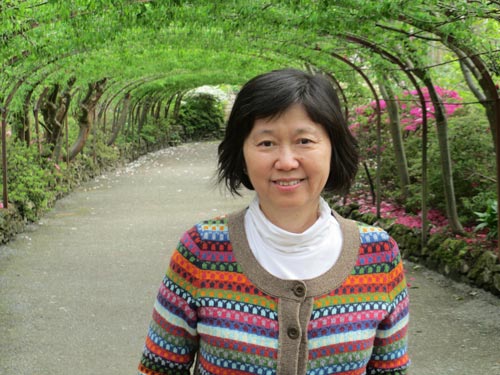A Diminishing and Vital Resource
Hong Kong consists of Hong Kong Island, the Kowloon Peninsula, the New Territories, and other outlying islands. With a total land area of around 1,100 square kilometers, Hong Kong is the home of just over 7 million people. Hong Kong became a British colony in 1842 but reverted to Chinese rule in 1997 under the official name of the Hong Kong Special Administrative Region (HKSAR). The official languages are Chinese and English.
Although both Chinese and English can be used as languages of instruction in the schools, English is often the medium of higher education in Hong Kong. In view of Hong Kong’s importance in financial services, this is not surprising. In the last decade, Hong Kong has also become more active in the literary arts in English. The Hong Kong International Literary Festival was inaugurated in 2001, and the Man Asian Literary Prize (established in 2007) chose Hong Kong as its base. There are quite a few creative writing programs based in Hong Kong, including the M.F.A. in creative writing in English at the University of Hong Kong (HKU), the M.F.A. in creative writing at the City University of Hong Kong, and a new bilingual B.A. (Honors) in creative and professional writing at Hong Kong Baptist University. Literary prizes in English include one offered by Proverse Hong Kong, a publisher based in Hong Kong, and a poetry prize offered by HKU since 2010.
Hong Kong, an international city, seems to attract a good number of writers from other countries to its shores; even the writers originating from Hong Kong often travel overseas. The Hong Kong literary community is rather fluid, with members constantly arriving, departing, passing through, or returning. Given the bilingual nature of the society and the cosmopolitan influx of creative energies, it is appropriate to include in a snapshot of Hong Kong poetry not only those voices of Hong Kong provenance but also some poets who have transplanted themselves to Hong Kong from other lands. Of the 15 poets featured in this issue of FUSION, nine are of Chinese ethnicity but write in English (three of whom are currently living abroad), two write in Chinese but have been translated into English, and the remaining four hail from native English-speaking countries but have now made Hong Kong their home or one of their homes.
Although Hong Kong is surrounded by water, it seldom suffers from water-related disasters such as the 2004 tsunami, which hit several Asian countries. In one way, though, Hong Kong shares the plight of some other countries around the world: it cannot collect enough water from rainfall and has to import water from the China mainland for daily consumption by its vast population.
It has been said that clean water is now more precious than petroleum. Water is a diminishing element, and yet so vital for life. This special FUSION addresses water in all its forms— materially or metaphorically. One readily thinks of the Hong Kong harbor, the mist rolling down its mountains, the seasonal rain flooding a few areas usually only for a few hours, the raging typhoons that keep everyone lazing indoors…Yet as Marie Yip, the artist for this issue of FUSION, demonstrates in her photography, water permeates all our activities from birth to rebirth. The poems as a whole strike the same chord. The sea is the primeval bed of life and the rhythm of life, but it can also drown individuals. It can provide fish to sustain life, but it can also be a place of burial. A river offers communion with China, but it might also carry dead baby girls downstream. On land, a typhoon night might become a backdrop for intimacy, but it can also scatter dandelions like wandering ghosts. While literary ashes can be emptied into a well, poets can also choose to travel forever on a ferry. Paradoxes aside, one may simply decide to enjoy a fruit oozing with juice forbidden in a train, or admire ice lanterns in the wintry gloom, even if the amusement will not last. Water pervades life—both the destruction and the wonder.
Acknowledgements
Without the creative and generous participation from the poets and the artist, it would not have been possible to compile this issue. Some of the poems included first appeared in other publications and the kind permission from the authors and publishers to reprint them is gratefully acknowledged:
Ho, Louise. (2009). Canticle on a Drop of Water. Incense Tree: Collected Poems of Louise Ho (p. 31). Hong Kong: Hong Kong University Press.
Kaiser, Timothy. (2003). No Food or Drink on the Train. Food Court: Poetry by Timothy Kaiser (p. 16). Hong Kong: Chameleon Press.
Lee, Elbert S. P. (In press). You Can Stay on This Ferry Forever. Rain on the Pacific Coast. Hong Kong: Proverse Hong Kong.
Lo, Kwai Cheung. (2012). A Postgraduate Gender Class Almost Drowning a Miss Hong Kong Contestant. Memory temporarily kept (pp. 87-88). Hong Kong: Twilit Publication. First published in Chinese.
McKirdy, David. (In press). Bamboozled. Ancestral worship. Hong Kong: Chameleon Press.
Slavick, Madeleine. (2010). North. Something Beautiful Might Happen (p. 96). Tokyo: Ushimaoda.
Tu, Chia Chi. (2002). Female Fish. The Witch’s Song (pp. 110-114). Hong Kong: Su Yeh Publications. First published in Chinese.
This issue also drew upon the background research for the Contemporary Asian Poetry in English project, fully supported by a substantial grant from the Research Grants Council of the Hong Kong Special Administrative Region, the People’s Republic of China (Project No. HKU 745908H), and a merit award from the University of Hong Kong. Sincere thanks are also owed to Xu Xi for her kind introduction to Kwame Dawes; to Page Richards for her timely help in contacting some of the poets featured; and to Kwame Dawes, Marianne Kunkel, and the Prairie Schooner editorial team for their professional support at various stages of the work.
